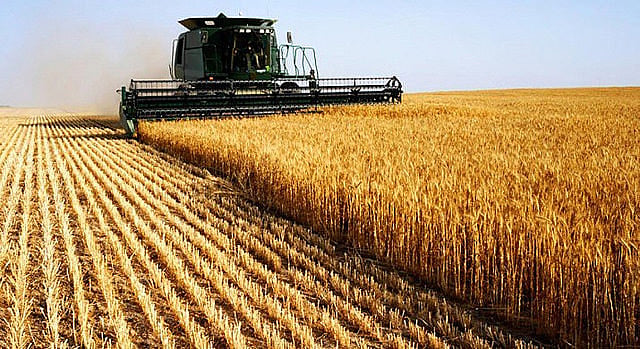Eighty-seven corporations alone, based in 30 countries, control the entire world’s agribusiness supply chain. This includes beverage and meat-packing giants, such as Coca-Cola, AmBev, JBS, and Unilever, but also technology companies such as IBM, Microsoft, and Amazon, drawn to agriproducts and food retail due to areas such as Big Data and smart vehicles.
Four large traders – investors in the financial market – control the import and export of agricultural commodities. It’s the so-called ABCD group: US corporations Archer Daniels Midland (ADM), Bunge, Cargill, and Netherlands-based multinational Louis Dreyfus Company. They currently hold a 70 percent share of the global market of agricultural commodities.
The data are part of the Agrifood Atlas released on Tuesday in Brazil. The report investigates the global agricultural supply chain and how market concentration in the hands of few companies can shape the global agricultural system.
Maureen Santos, a coordinator of Socio-environmental Justice at Heinrich Böll – one of the organizations that produced the atlas –, explains that the new document analyzes the local reality of agribusiness.
Santos argues that the project’s merit is to map out in one work data about the industry that include finance, investments and machinery; conflicts over land and water; use of seeds and fertilizers in the commodity market; and food processing all the way to consumers.
“We show that, all over the world and also in Brazil, we have very serious problems regarding this chain: the expansion of monoculture crops and consequently the increasing use of agrochemicals and health problems; soil quality degradation and loss of biodiversity; and the conflicts resulting from greater market concentration and more acquisition of land to the detriment of life and work conditions of family farming, as well as peasants and traditional peoples.”
Financialization
The atlas also shows how the ABCD traders play the financial game in the speculative market.
The volume of corn futures traded in 2015 was 11 times larger than the global production of corn. That means that, while corn harvest reached 978 tons, contracts traded in stock exchanges accounted for around 10.5 million tons.
Not only that, the ABCD group is also directly or indirectly responsible for tropical deforestation. In Brazil, for instance, Guarani indigenous communities accuse Bunge of buying sugarcane produced on land that has been stolen from them in 2012. At the time, the company said its suppliers respect the right to land, but later their contracts were not renewed.
Food sovereignty
Supply chain concentration is also threatening ancient farming knowledge, a concern expressed by journalist Verena Glass, a project coordinator at the Rosa Luxemburg Foundation who collaborated in the report. She points out that the increasing use of state-of-the-art technology, such as precision agriculture, represents a threat to food sovereignty in several countries.
“What used to be so alive, which is the relationship between feeding human beings and reproducing life based on the knowledge of the land, the territory, the weather, the animals, and the integration with biodiversity, is ultimately replaced. Adding that to transgenic seeds, agrochemicals, technification, and patents, we lose biodiversity and knowledge,” the journalist says.
Glass also points out the increasing number cases of land conflicts. “Will family farming and agroecology, indigenous and quilombola communities in Brazil and the world have a place in these new paradigms?,” she argues.
The report also shows the number of companies in the global seed and agricultural chemical markets is dramatically dropping as more mergers create powerful corporate conglomerates. After Bayer won approval to buy Monsanto in June this year, the market is now controlled by four big players: Dow DuPont, Bayer, Syngenta, and BASF.




